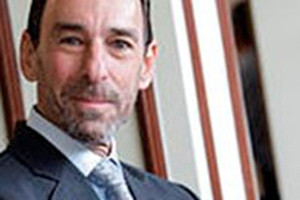The problem with being WEIRD

By: José Azel - 02/10/2023
Share:
Being weird is defined as eerie, uncanny, strange, or even supernatural. Now, anthropologist Joseph Henrich is calling us WEIRD for being raised in a society that is Western, Educated, Industrialized, Rich and Democratic. Dr. Henrich posits that WEIRDs are highly individualistic, self-obsessed, nonconformist, and analytical. Most importantly, he claims that us WEIRDs are unlike most of the world today, and unlike most people who have ever lived. In other words, as Western, Educated, Industrialized, Rich and Democratic we are really weird.
It turns out that nearly all research in psychology is conducted on a very small subset of the world’s population. That is, most psychological research is conducted on subjects that are Western, Educated, Industrialized, Rich and Democratic. But WEIRDs are statistical outliers. WEIRDs are not typical or representative of the total world population. Consequently, social scientists are extrapolating invalidly from the psychological profiles of WEIRDs to make inferences about human nature in general.
WEIRD and non-WEIRD peoples think differently and see the world differently. Most people around the world -the non-WEIRDs- think holistically focusing on groups and institutions and are more likely to see relationships and contexts. Non-WEIRDs peoples are not dedicated to protecting individuals and place the needs of groups and institutions ahead of the needs of individuals. Thus, their preferred political systems will be communitarian and oriented to groups and institutions.
On the other hand, WEIRD peoples are nonconformists. They think more analytically, are motivated by self-accomplishments and aspirations, and are able to separate the person from his or her sociopolitical context. WEIRDs see a world full of individuals and create political models that protect those individuals and their individual rights. WEIRDs will seek to develop social and political systems that are individualistic, and rule-based.
Professor Henrich’s dichotomy is provocative in proposing an explanation for our sense of self, but also for the large-scale social, political, and economic forces that drive human activity. Building on this theme, Jonathan Haidt, Professor of Ethical Leadership at New York University, observes in his new book The Righteous Mind, that most societies choose socio-centric systems that favor the needs of groups and institutions over the needs of individuals. In contrast, a WEIRD political approach places the individual at the center and develops a society that serves individual needs.
As Dr. Haidt points out, most of human history was dominated by socio-centric systems until the Enlightenment when the individualist approach expanded rapidly and lead to a new conception of individual rights in the Western world. Unfortunately, in the 20th Century socio-centric systems made a comeback in the form of fascist and communist regimes. And today, our international and domestic politics are often divided into WEIRD and non-WEIRD camps.
As highly successful Western, Educated, Industrialized, Rich and Democratic societies we believe our socioeconomic and political systems -focused on the individual- offer the best opportunities for the progress of humanity. And yes, our socioeconomic and political systems work well for our WEIRD cultures. Yet, it is not clear that our individualistic platforms are workable in a non-WEIRD world that is socio-centric and unlearned in democratic governance. This may help explain why our WEIRD economic development approaches have not met expectations in the non-WEIRD world.
It is not that there is much wrong with our WEIRD culture. The problem comes when we resolve that WEIRD should be a universal law as in a Kantian maxim. Much of the non-WEIRD world has very little sense of the give-and-take of representative government and little appreciation for political pluralism. Often, the unthoughtful implementation of individually focused socioeconomic political models in socio-centric non-WEIRD societies has resulted in despotic governments.
Commenting on the French Revolution, the statesman and philosopher Edmund Burke (1729-1797) noted that the French philosophes supported the violence of the Revolution because their political understanding did not grow organically from their political experience. Analogously, we cannot impose our Western, Educated, Industrialized, Rich and Democratic understanding of humanity on non-WEIRD societies. We can seed it, but ultimately the problem with being WEIRD is that it must grow organically.
«The opinions published herein are the sole responsibility of its author».